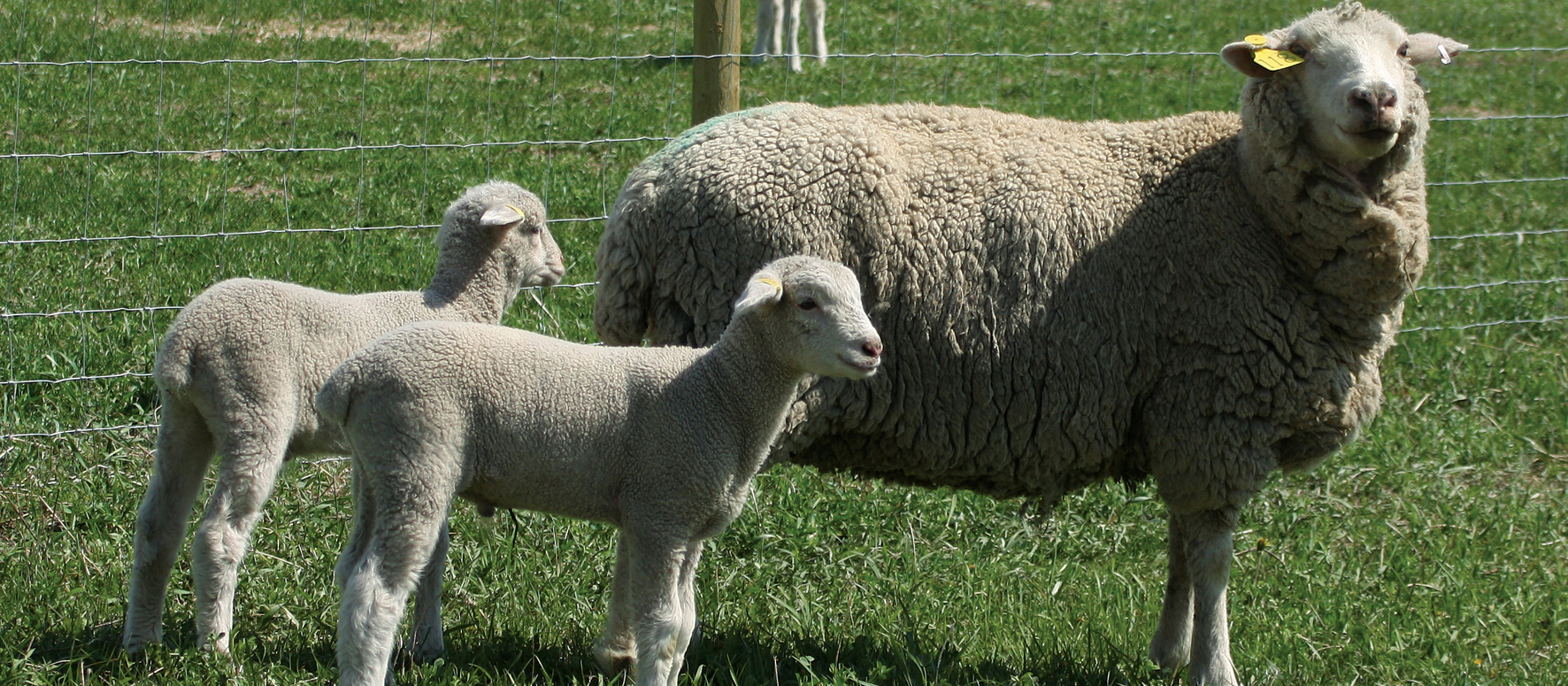Sheep and Goat Industries Launch Collaborative Project

Canada has a strong reputation of being a world leader in genetic improvement and animal breeding. For the sheep and goat industry, there are many opportunities to build on that reputation, improve services to producers, and better integrate them
For this purpose, the Canadian Sheep Breeders Association, the Ontario Sheep Farmers, the Canadian Goat Society, the Canadian Meat Goat Association and several organizations that currently provide genetic improvement services for sheep and goats, namely the Centre for Genetic Improvement of Livestock at the University of Guelph, the Canadian Centre for Swine Improvement, the Centre d’expertise en production ovine du Québec (CEPOQ), the Canadian Livestock Records Corporation and AgSights, have launched a new collaborative project, over a period of 3 years.
“I can see many advantages to this initiative,” stated Keith Todd, Canadian Sheep Breeders Association. “It will not only enhance animal registration and genetic improvement services for sheep breeders and producers over the duration of the project, it will increase the long term viability of these services through better integration, ultimately benefiting all sheep producers in Canada.”
The first objective of the project is to enhance genetic improvement services to the industry. This includes, for example, strengthening Genovis, the current genetic improvement system for sheep; modernizing the system for animal registration of sheep and goats; increasing the quality and quantity of information available to dairy goat breeders; developing genetic evaluations for meat goats; facilitating the exchange of data between service organizations and with on-farm software companies that support genetic improvement; and preparing for an expanded use of genomics as a selection tool. Work has already started in planning some of these initiatives.
“It makes sense for the sheep and goat industry, whether they produce meat or milk, to collaborate on common fronts“The second objective of the project is to identify ways of further integrating genetic improvement services during and beyond the project, with the aim of making these services more efficient and cost-effective, and ensuring their perennity. This is critical for the success of both the sheep and goat industries and could be extended to the integration of services with other species groups such as swine.
“Genetics is a key part of our production system,” added Jenn MacTavish, Ontario Sheep Farmers. “Both breeders and commercial sheep producers will benefit from improved genetics, leading to a more sustainable supply and a better fit to market needs.”
Dr. Jacques Chesnais has been contracted to assist project partners with meeting these objectives. Dr. Chesnais is well known and respected in the Canadian livestock industries, with over 40 years experience in livestock genetic improvement services.
“Genetic improvement programs for meat goats are still in their infancy in Canada,” Catherine Michaud, Canadian Meat Goat Association said. “The best way for us to make progress is to make use of the expertise and experience available for sheep and dairy goats, which this project makes possible by increasing the level of cooperation among all organizations involved.”
To capture existing opportunities, Canadian sheep and goat producers need access to the right genetics, and to the tools necessary to keep these genetics competitive. The potential for growth in the Canadian sheep and goat industry is large. Currently, domestic production only accounts for about 40% of the Canadian lamb meat market. The number of goats in Canada has more than doubled in the last 30 years. Products such as goat meat or ewe milk are more popular than ever. The industry, to grow its production and satisfy market demand, needs competitive genetics.
“I am very excited about this project,” said Russell Gammon, Canadian Goat Society. “It makes sense for the sheep and goat industry, whether they produce meat or milk, to collaborate on common fronts, including genetic evaluation, classification, importation of genetics, traceability, etc. We have more things in common than we have differences, and collaboration is the best way to take advantage of economies of scale. We should have started it many years ago.”
This project is funded in part by the Government of Canada under Agriculture and Agri-Food Canada’s Canadian Agricultural Strategic Priorities Program. AAFC will contribute $495,000 over three years to match co-funding provided by the Ontario Ministry of Agriculture, Food and Rural Affairs (OMAFRA), the Ministère de l’Agriculture, des Pêcheries et de l’Alimentation du Québec (MAPAQ) and the project partners. The project announcement from AAFC can be found here: https://www.canada.ca/en/agriculture-agri-food/news/2022/01/helping-sheep-and-goat-farmers-improve-productivity-and-increase-supply-with-a-new-genetic-services-system.html











